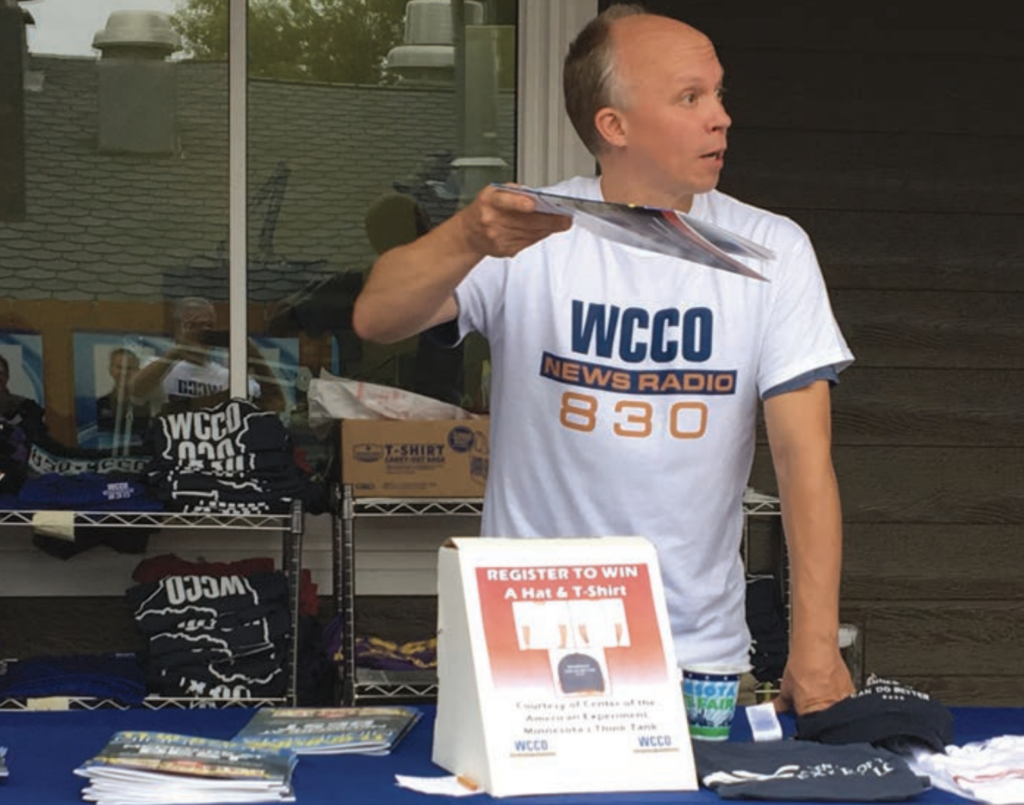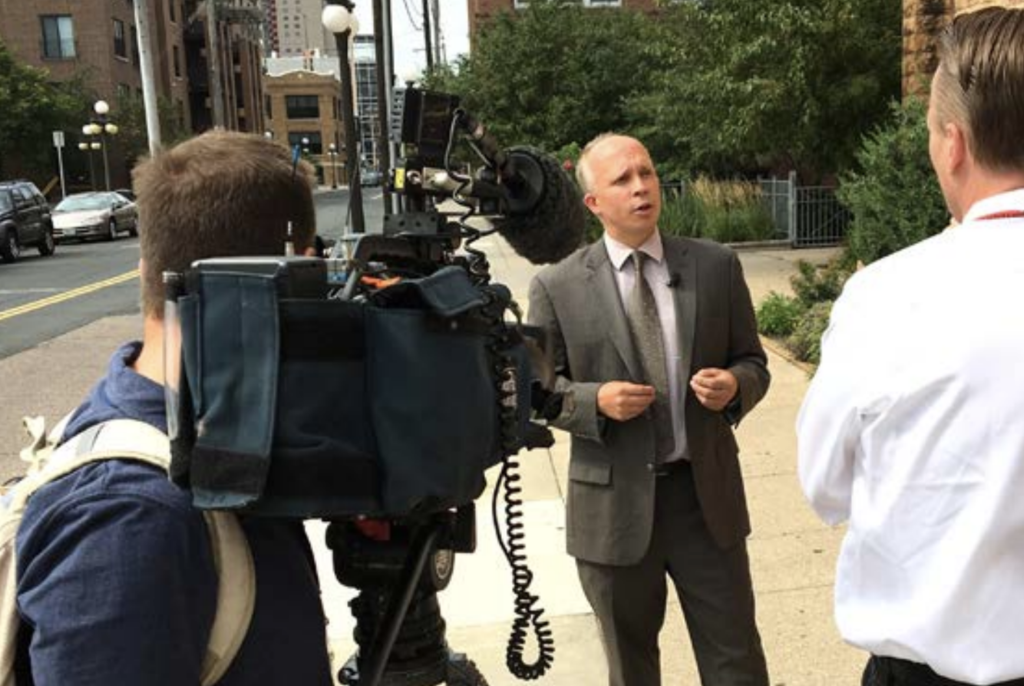D.C. bound
An American Experiment stalwart for 20 years, Peter Nelson takes a job in the Trump Administration.
Peter Nelson, vice president and senior policy fellow at Center of the American Experiment, resigned in December to take an appointment in the Trump Administration. He is now a senior advisor to the Administrator of the Centers for Medicare and Medicaid Services (CMS). His primary responsibility is to act as a liaison between the administrator and the Center for Consumer Information and Insurance Oversight (CCIIO), the entity that regulates the insurance markets and the insurance exchange.
“There is no other organization in Minnesota right now that influences public policy more than the Center,” Nelson said. But the appeal of a D.C. position, he said, was irresistible.
“It’s possibly one of those once-in-a-lifetime opportunities to go to D.C. and help make policy for the nation,” he said.
“I’m in a position to influence the policy that is being developed for the insurance markets across the country,” Nelson said. “And right now, the insurance markets are unstable. They need new ideas, they need to be pushed in a different direction. I’m not going to D.C. to sit on my hands. The system’s not working, and we’re making changes.”
“I’ve been saying for a long time that Peter is one of the top health care experts in the country, and his appointment by the Trump administration bears that out,” said Center President John Hinderaker. “If Peter ever tires of life in the bureaucracy, we hope he will come back home to Minnesota and the Center.”
Nelson’s experience at American Experiment positions him well to be one of those change makers. While at the Center, he developed a reputation for insightful analysis and imaginative problem-solving on a wide variety of public policy issues—energy, state tax and budget among them—but nowhere more than in health care. A member of the Minnesota Health Care Financing Task Force created by the legislature and governor in 2015, he became known for developing policies based on competition and innovation among both health care providers and insurers, as well as policies to make public health care programs more sustainable and effective.
His worked received national attention earlier this year with a proposal that would allow employers to fund a health plan that gives their employees the same choice and portability found in the individual insurance market.
Nelson joined Center of the American Experiment in 1997, soon after graduating from Wheaton College. He stayed for most of the next two decades, pausing only long enough to attend the University of Minnesota Law School. He spent 1997-2001 as a policy analyst; 2004-2006 as project director for Intellectual Takeout (at the Center); 2006- 2010 as a policy fellow; and 2011-2015 as director of public policy. In 2016, Nelson was named vice president and senior policy fellow.
Nelson is universally credited with raising the Center’s stature at the legislature and access to policymakers after he took on the role of being the Center’s primary liaison with the legislature in 2006.
“When I started, we didn’t really have that much going on in St. Paul, back in 2005,” he says. “I had the opportunity to basically take a position at the Center that was entirely focused on policy. I had a lot of freedom to do what I thought was in the interest of the Center and the best interest of Minnesota, when it came to policy.”
Nelson considers his central role as editor of The Minnesota Policy Blueprint to be his proudest achievement at the Center. The Blueprint, published in 2014, is a 240-page book of policy analysis and recommendations covering 10 issue areas. Nelson brought his meticulous editing skills and eye for detail to each chapter.
“We wrote a book that set a policy agenda for Minnesota, and that agenda is still being advanced,” Nelson says. “We’ve already had remarkable success on a number of policy fronts.”
Nelson characterized his energy work (which continues on in the cover story of this issue of Thinking Minnesota) as highlighting the workforce, reliability and cost impacts of Minnesota’s expansive green energy policies. He has been one of the sole voices in the state promoting affordable electricity rates for Minnesota families and small businesses.
Another key interest of his writing and research, according to Nelson, was how Minnesota’s tax and budget policies impact the state’s economic growth. His research on migration patterns of people and income to and from Minnesota constitutes the best evidence of how high taxes make the state a less attractive place to invest, work and grow a business.
Nelson regularly consulted with state policymakers and the media on these issues, as well as other important issues of state and local governance. His commentaries appeared frequently in the Star Tribune, Pioneer Press, and other local newspapers across Minnesota. His work has also appeared in the USA Today and the Wall Street Journal. In addition to these policy areas, Nelson analyzed legal issues, primarily related to the legitimacy of state and local governments’ actions. Most recently, he authored an amicus brief supporting a challenge to the City of St. Paul’s attempt to bypass taxpayer protections in the state constitution by masking a general tax as a user fee.

Nelson developed a reputation as a policy analyst and frequent adviser to policymakers in the state legislature. But he was not above doing whatever else needed to be done. He originated the newsletter that became Thinking Minnesota magazine and is seen here hawking American Experiment t-shirts in the WCCO Radio booth at the Minnesota State Fair.

Nelson considers his central role as editor of The Minnesota Policy Blueprint to be his proudest achievement at the Center. The Blueprint, published in 2014, is a 240-page book of policy recommendations covering 10 issue areas. “And that agenda is still being advanced,” Nelson says. “We’ve already had remarkable success on a number of policy fronts.”

Nelson regularly consulted with state policymakers and the media about state and local governance.